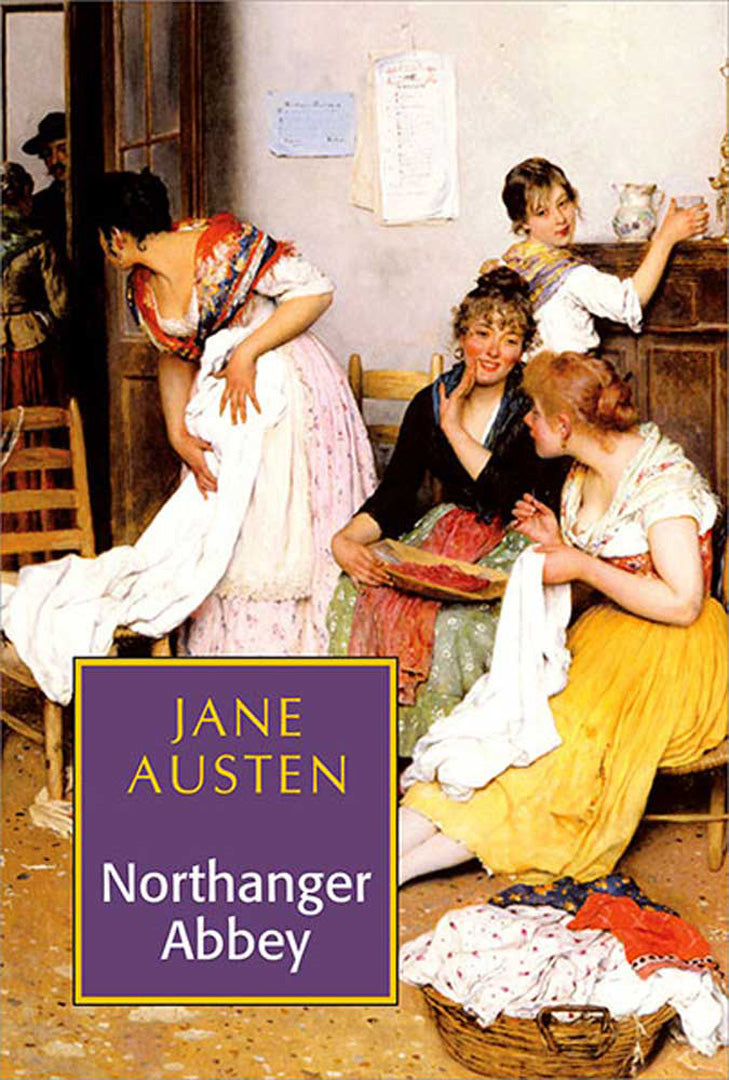Northanger Abbey
Northanger Abbey
Jane Austen
Couldn't load pickup availability
Share

More Information
- ISBN13:
- Publisher: Atlantic Publishers & Distributors (P) Ltd
- Publisher Imprint: Peacock Books
- Publication Date:
- Pages: 216
- Binding:
- Item Weight:
- Original Price:
About The Book
Northanger Abbey, written during the same period as Pride and Prejudice and Sense and Sensibility, represents Jane Austen's genius at its freshest and most enchanting. It grew out of her distaste for the absurdities of the novels of her time and in particular, for the conventions of the ‘Gothic novels’ with their impossibly perfect heroines and unnatural events.
Young Catherine Morland, the heroine of the novel, is the mistakenly invited guest at an isolated, and quite mysterious, country manor. There the charming, young husband-seeker falls in love with Henry Tilney, son of the eccentric General Tilney, and is fortunate to gain his father’s approval, which is founded upon the exaggerated report of her parents’ wealth. Catherine is invited to Northanger Abbey, the medieval seat of the Tilneys. Somewhat unbalanced by a too assiduous reading of Mrs Radcliffe’s novels, she imagines numerous gruesome secrets surrounding the General and his house. Before Catherine’s difficulties are resolved, the reader witnesses the romantic chase in all its prescribed ritual, and its prime motivations-ambition, pleasure, greed, power, self-interest.... love. Jane Austen’s wonderful comedy of errors has become one of the best loved of all novels.
About The Author
Jane Austen (1775-1817) was the daughter of a well-off, cultivated Hampshire clergyman, the Rev. George Austen. She was the sixth in a family of five sons and two daughters. Her main education was from her father. As a child and young woman she read widely, including among novelists, Fielding, Sterne, Richardson, and F. Burney; and among poets, Sir W. Scott, Cowper, and her particular favourite, Crabbe. She began her literary career by writing parodies and sketches for the amusement of her family. Some of these were later worked up into the major novels of her maturity. Her life is notable for its lack of events; although she had several suitors, she did not marry. In 1801 the family moved to Bath, in 1806, after Mr. Austen’s death, to Southampton, and 1809 to Chawton, again in Hampshire, where she lived till her death in 1817.
Jane Austen wrote of the provincial life she had seen (she never visited London) and there are no peasants and few noblemen among her characters. But her sense of comedy was aroused by the absurdities of the sentimental and gothic novels that she encountered, and her sharp mind enabled her to write ironically amusing sketches of character and situation; she minutely dissected snobbery, bourgeois morality and hypocrisy in an understated manner that comes as a relief from the excesses of many of her contemporaries.
Though her life was uneventful, placid, and circumscribed, Jane Austen was highly sensitive to what went on around her. Her observations on the manners of her time and of her class are reflected in her novels: Sense and Sensibility (1811), Pride and Prejudice (1813), Mansfield Park (1814) and Emma (1816).
On July 18, 1817, at Winchester, Hampshire, the author died, as quietly and serenely as she had lived.

